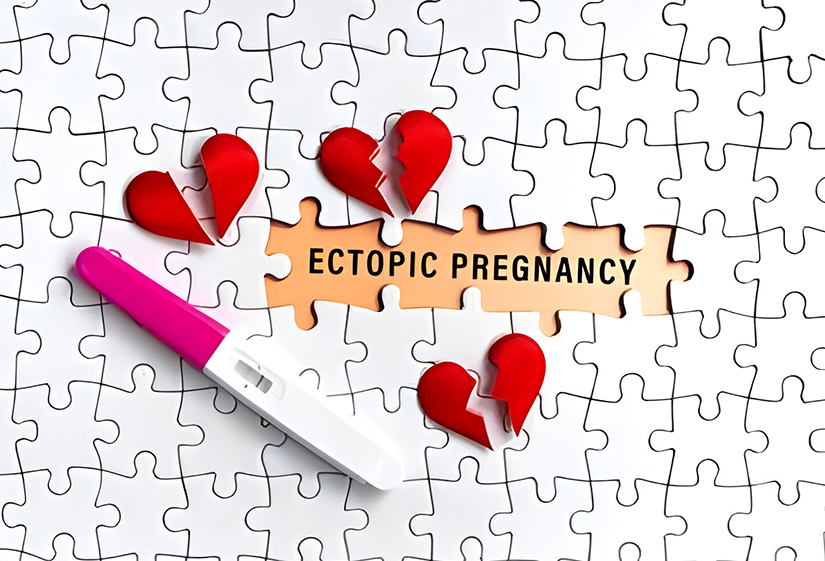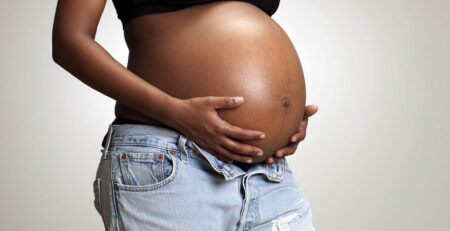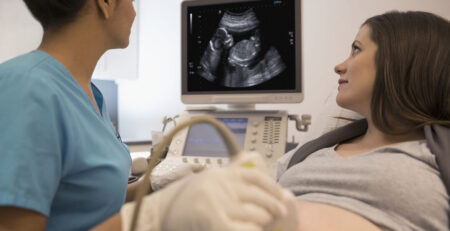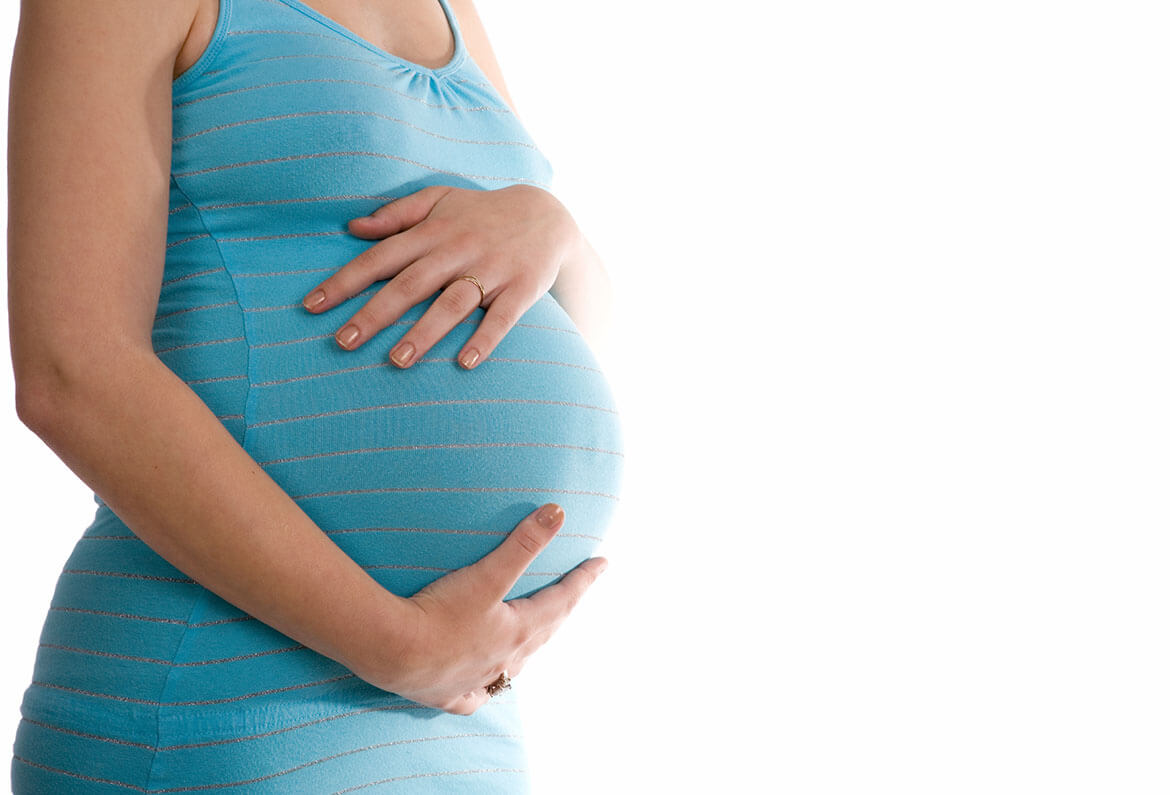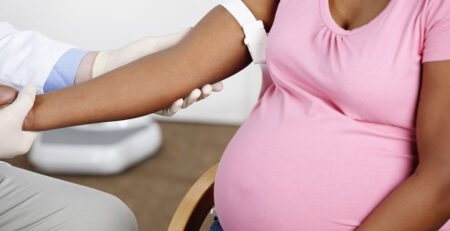How to Avoid Ectopic Pregnancy with IVF
Sometimes, welcoming a child into the world becomes challenging, especially for those couples who are dealing with infertility. Thanks to medical advancement, IVF treatment has emerged as a beacon of hope, enabling them to achieve their dreams of parenthood. However, this advanced reproductive treatment comes with several ups and downs, especially the possibility of ectopic pregnancy.
What is ectopic pregnancy? What are its risk factors? Are there any ways to prevent it? So many questions, right? But don’t worry! This blog will clear all your doubts and help you make an informed decision about starting your IVF journey.
What is Ectopic Pregnancy?
In normal pregnancy, fertilization is supposed to happen in the tube, and implantation occurs within the uterus. However, sometimes, the process gets misguided, and this little embryo ends up in one of the fallopian tubes instead. These tubes are the pathways that should help the egg meet the sperm and head to the uterus, but sometimes, after meeting the embryo gets stuck there and starts growing, which can cause problems.
Does IVF Treatment Increase the Risk of Ectopic Pregnancy?
Did you also think that ectopic pregnancy is more common in IVF treatment as compared to normal pregnancy? Lets see!
In IVF treatment, the sperm and eggs are fertilized in the laboratory, outside the body. The fertilized embryo is then transferred to the uterus. Now, the thing that needs to be remembered is that the embryo should be placed carefully under ultrasound guidance. Using ultrasound the IVF specialist would place the embryo a little below the fundus, precisely at the point of maximum implantation.
Additionally, transferring multiple embryos may raise the chance of ectopic pregnancy. To reduce this danger, several reproductive IVF specialists in Delhi now recommend single embryo transfers.

Risks of Ectopic Pregnancy
Sadly, it is true that ectopic pregnancies can not grow the way normal pregnancies do, and if they are not dealt with in time, they can cause really serious health issues.
This includes things like the ruptured fallopian tube, where the embryo often gets stuck. This can lead to a lot of bleeding inside the body, which is very dangerous and can even be life-threatening for the woman.
Hence, it is necessary to treat them properly through the best IVF specialist in Delhi. This treatment often involves injections to halt the growth of ectopic pregnancy and sometimes surgery to remove the part where the embryo is implanted if it ruptures.
Symptoms of Ectopic Pregnancy
This situation needs quick recognition and treatment because if it’s left untreated, it can turn into a serious, even life-threatening issue. But catching this issue at an early stage is not that easy. However, the most common symptoms of ectopic pregnancy may include:
- Pain in Your Belly or Pelvis: You might feel a sharp or stabbing pain on one side down low in your belly or pelvis.
- Bleeding That’s Not Your Period: You can experience light spotting. However, some females can have heavy bleeding, and it is usually not like your normal period blood.
- Gastrointestinal Symptoms: You might also feel discomfort in your stomach, throw up, have diarrhea, or just feel generally uncomfortable in your gut.
- Dizziness and loss of consciousness.
Causes of Ectopic Pregnancy
Well, several reasons can lead to ectopic pregnancy. Identifying these reasons can help to prevent the chances of ectopic pregnancy and ultimately enhance the success rate of IVF treatment. These reasons may include:
Fallopian Tube Issues: One of the major reasons for ectopic pregnancies is because of problems with the fallopian tubes. If these tubes are damaged or blocked for any other reason, the placed embryo sometimes slips to the tube where it is supposed to grow.
Hormone Imbalance: When hormone levels are abnormal, they can disrupt the contractions and secretions in the uterus, resulting in an ectopic pregnancy.
Smoking: Sometimes, bad lifestyle habits like smoking cigarettes can also increase the chances of ectopic pregnancy. Smoking cigarettes can cause damage or dysfunction in fallopian tubes, leading to implantation in the wrong location.
Previous Ectopic Pregnancy: If you have experienced an ectopic pregnancy before, unfortunately, your chances of having another one are much higher.
Uterine Disorders: Health conditions that cause inflammation in the uterus, like fibroids, adenomyosis, and endometriosis, can make it more likely for the embryo to head in the wrong direction, leading to the risk of IVF, ectopic pregnancy.
Cesarean Scars: If you have had a C-section in the past and the scar has not healed properly, that spot could be where an ectopic pregnancy decides to implant.
Too high placement of embryo or use of too much media during Embryo Transfer can become a risk of resulting in ectopic pregnancy.
How To Avoid Ectopic Pregnancy With IVF?
Although the things raising the risk of an ectopic pregnancy can’t be changed, there are a few things that can be managed, especially with IVF treatment. By focusing on these factors, you can reduce your chances of having an ectopic pregnancy. Let’s take a closer look at these proactive steps that you can take.
Make Lifestyle Changes: Making small lifestyle changes can make a big difference. Quitting smoking: As we discussed in the previous section, smoking can harm your fallopian tubes, making it hard for eggs to travel correctly and increasing the chance of the egg implanting outside the uterus. Giving up cigarettes keeps your fallopian tubes and eggs healthy. It is not just good for your chances of a healthy pregnancy and reduces the risk of IVF failure but also for your overall health.
Addressing Tube Issues: If you are dealing with tubal factor infertility, when your fallopian tubes are blocked or damaged or have a history of ectopic pregnancies, addressing these issues can help you to fulfil your dream of welcoming your kid into the world. Now, the question is how these issues can be addressed.
One way to resolve these issues is through tubal clipping through laparoscopy. This can help solve the problem of tubal factor infertility and lower the risk of having an ectopic pregnancy.
Age: Do you know that old age is one of the significant reasons for ectopic pregnancy? For women over 35, the chance of an ectopic pregnancy goes up because of hormonal changes in the reproductive system. So, if you are thinking about getting pregnant at this age, it’s a good idea to talk to an IVF specialist in Delhi first. They can give you all the advice and support you need.
Optimal Embryo Transfer: Using minimum amounts of transfer media during IVF treatment and placing the embryo in the proper spot within the uterus can reduce the risk of ectopic pregnancy. Ensure that transfers are done under ultrasound supervision to avoid putting the embryo too close to the fundus (top of the uterus), where ectopic pregnancies are more common.
Using Uterine Relaxants: If there is a high risk of an ectopic pregnancy, the IVF specialists in Delhi might give medicine that relaxes the uterus before inserting the embryo. These medicines can help lower the chance of the embryo attaching in the wrong place, making it more likely for the embryo to implant successfully in the right spot. This step makes the uterus more welcoming for the embryo to settle and grow.
Treating Pelvic Inflammatory Disease (PID): Pelvic inflammatory disease (PID) occurs when the reproductive parts of a woman, like the uterus, fallopian tubes, and ovaries, get infected. This can harm the tubes and raise the chances of an ectopic pregnancy, where the baby starts to grow outside the womb. Catching PID early and treating it with antibiotics can stop the fallopian tubes from getting inflamed and scarred, lowering the risk of ectopic pregnancy and enhancing the success rate of IVF treatment.
Treating Sexually Transmitted Infections (STIs): Sometimes sexually transmitted infections (STIs), like chlamydia or gonorrhea, can also increase your chances of having an ectopic pregnancy. To keep the risk low, it’s smart to practice safe sex, getting checked for STIs regularly and quickly treating any infections with antibiotics are key steps. These actions help prevent more serious issues, like pelvic inflammatory disease (PID), another significant cause of ectopic pregnancy.
Ectopic pregnancy is a big issue for anyone having IVF, but by recognizing the risk factors and implementing preventative techniques, you can reduce your chances. If you are considering IVF treatment, contact Dr. Rhythm Gupta to learn about and remove the risks of ectopic pregnancy, allowing you to fulfill your dream of becoming a mom.

